#reduces risk of depression
Text
A comprehensive guide to finding out the health benefits of proper sleep
Adequate sleep has numerous health benefits, including:
1. Improved Memory: Sleep helps the brain commit new information to memory through a process called memory consolidation.
2. Enhanced Concentration and Productivity: Good sleep can maximize problem-solving skills and enhance memory. Poor sleep has been shown to impair brain function.
3. Lower Risk of Heart Disease and Stroke: Sleeping…

View On WordPress
#aids in digestion#aids in weight management#boosts immune system#enhances creativity#enhances mood#improves athletic performance#improves concentration#improves learning ability#Improves memory#improves mental health#improves skin health#increases lifespan#increases productivity#promotes growth in children#promotes heart health#promotes muscle repair#reduces inflammation#reduces risk of chronic diseases#reduces risk of depression#reduces stress
0 notes
Text
Did anything good happen in 2023? Yes!!
Sometimes, we all need a reminder that the world is not in a death spiral. This is a wonderful article from the Washington Post that shows huge and promising developments and it's worth reading.
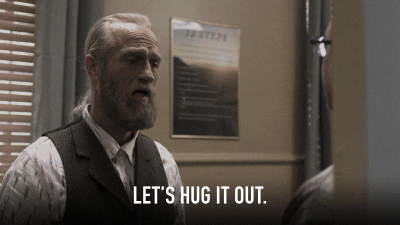
Research has indicated that uplifting news can provide an emotional buffer against distressing news and feelings of hopelessness — and even encourage optimism or action. So, in that spirit, here are some of the more uplifting developments you may have missed this year.
The WHO approved an effective new malaria vaccine.
In October, the World Health Organization approved a malaria vaccine — only the second time a vaccine against the potentially deadly disease has been created. The WHO said it expects the vaccine, which costs $2-$4 per dose and has been shown to reduce symptomatic cases by 75 percent after three doses within a year, to be available by the middle of 2024.
More than 600,000 people died of malaria in 2021, with children under 5 representing 80 percent of malaria deaths in Africa. The United States reports about 2,000 malaria cases every year, the Centers for Disease Control and Prevention says, with the majority of them contracted abroad.
Tedros Adhanom Ghebreyesus, the director general of the WHO, said the announcement gave him“great pleasure. ... I used to dream of the day when we would have a safe and effective vaccine against malaria. Now, we have two.”
The FDA approved a groundbreaking pill to treat postpartum depression
In the United States, the Food and Drug Administration also approved a number of potentially life-changing drugs, including a first-of-its-kind pill to treat postpartum depression, which affects up to 1 in 5 women. The severe and debilitating condition can cause pregnant and new mothers to experience intense hopelessness and, in rare cases, psychosis — and it can last for years.
The new drug is taken once a day for two weeks and, unlike the existing treatment of an IV injection that may take as long as 60 hours to administer in a health-care setting, it can be taken at home — greatly improving accessibility, especially for parents caring for a newborn.
While experts say the drug may not be suitable for all women with the condition and won’t be able to treat all aspects of a new mother’s mental health, they argue that the drug is nonetheless a convenient and fast-acting treatment, and is particularly useful in the early days after a birth, when parents and babies start bonding.
Two sickle cell disease treatments gained approval
In December, the FDA also approved two therapies for sickle cell disease, a rare and debilitating condition that affects around 100,000 Americans, most of them Black. The disease causes extreme, constant pain and can drastically cut the life span of those affected.
The new treatments are both gene therapies that have been shown in clinical trials to stop severe pain crises for most patients: One uses a harmless virus to insert a gene into the patient’s stem cells, while the other is the first medical treatment to be based on the gene-editing tool CRISPR.
Both are intensive, expensive procedures — and require chemotherapy, which has significant side effects. But patients who have received the treatments have spoken of its profoundly beneficial impact on their lives.Jimi Olaghere, a father of three who likened the pain caused by the disease to glass shards sawing back and forth inside his veins, said that after years of being unable to sleep at night because of pain, he has energy again, and that the treatment has enabled him for the first time to plan for a future with his family.
We learned more about dementia and memory loss — and how to prevent them
Scientists also made progress in understanding one of the biggest health concerns for countries with aging populations — dementia, which can have a devastating impact, robbing people of the ability to engage in daily tasks.
While there is no proven cure for dementia, scientific research has continued to find that there many steps we can take to reduce the risk of developing dementia.
One study published this year suggested that lifestyle habits, including regular mental and physical activity, eating a healthful diet, and regular social contact were linked with a slower rate of memory decline. Another found that living in areas with more natural green spaces was associated with lower rates of hospital admissions for diseases including dementia, while separate research indicated that the use of hearing aids could cut the risk of cognitive decline by nearly half.
The FDA also gave full approval, for the first time, to a drug that modestly slows Alzheimer’s disease. While difficult questions about safety, effectiveness and cost remain, many neurologists say that having a drug that slows Alzheimer’s is nonetheless a milestone after years of failed trials.
After 20 years, countries agreed a treaty to protect the ocean
Human health wasn’t the only area to see improvements this year. Even as scientists voiced concern about the state of Earth’s health, there were some positive steps to protect the planet.
In May, more than 190 countries agreed a major deal to protect the biodiversity of the world’s oceans outside of national borders, after more than two decades of talks. The United Nations adopted the treaty in June.
At present, only 1.2 percent of the high seas — which make up two-thirds of the planet’s ocean surface — are protected, leaving large stretches at risk from rising temperatures, overfishing, pollution, mining and other threats. The deal will allow nations to start creating new marine protection areas in the high seas for the first time, although it still may be years before U.N. member states formally adopt the agreement and are able to begin the process of designating the new zones. Even then, enforcement may be difficult.
But the agreement has been welcomed as a much-needed start on the path to protecting 30 percent of the planet’s land and sea by the year 2030, a goal announced at a U.N. biodiversity summit in late 2022.
Brazil deforestation falls after reaching 15-year high
Last year, The Post published a series of storiesshowing the fast pace of destruction of Brazil’s Amazon rainforest under then-President Jair Bolsonaro. During his presidency, the rate of deforestation of the Amazon rose to a 15-year high, and those responsible for the destruction acted with impunity.
Luiz Inácio Lula da Silva returned to the presidency in January this year. His first six months in office showed positive signs, as authorities drove thousands of illegal gold miners from Indigenous lands, and the government said deforestation dropped by 50 percent.
There are questions about how likely the president is to reach his goal of ending deforestation by 2030, especially given government plans for a large-scale railway project and to pave a 540-mile highway. And deforestation isn’t the only environmental issue facing Brazil, which has come under scrutiny for its reliance on oil as it announced plans to align itself with a coalition of major oil-producing nations, OPEC Plus.
But European countries and the United States have once again offered to restart funding — which was suspended under Bolsonaro — to help end deforestation in the Amazon. Resuming the program would be a significant step for a rainforest that stores billions of tons of carbon and pulls millions more out of the atmosphere every year.
Even in a year of difficult news, moments of humanity shone through
While suffering across the world may have dominated the headlines in 2023, this year also reminded us that kindness and generosity exist, even amid crises and tragedy.
In March, after tornadoes devastated Mississippi, a group of Ukrainian refugees made a 16-hour journey to distribute water to victims of the disaster. Many had only just arrived in the United States — and still had immigration forms to fill in or job interviews to prepare for — but hoped to help a community they felt faced a struggle similar to theirs.
“When they stop what they’re going through to help someone else in need, that to me is the definition of love,” Corie Jones, the deputy director of Volunteer Mississippi, told The Post.
And in October, as police officer Arizbeth Dionisio Ambrosio was clearing debris after Hurricane Otis swept Mexico, she came across a woman with a crying, hungry baby. Ambrosio, who was breastfeeding her own 1-year-old, offered to nurse the baby and was able to soothe the infant — a moment of empathy that was praised around the world, and led to her receiving a promotion.
Ambrosio told The Post she didn’t consider what she did to be anything heroic or out of the ordinary. “It was what I needed to do and I did it,” she said. “When you are in a situation like that, you do not think whether to help or not. ... I felt peace because I was with the baby giving him what he needed at the moment
Find the full story here.
#Good things in 2023#human acts of kindness in 2023#reclaiming the rainforest#protecting the world's oceans#new advances in port-partum depression#new meds for sickle cell anemia#new affordable Malaria vaccine#ways to cut the risk of dementia by 50%#reducing the risk of dementia
10 notes
·
View notes
Text
The Health Benefits of Hiking: Why It’s More Than Just a Walk
Discover the amazing health benefits of hiking! We explore how this outdoor activity boosts fitness, improves mental well-being, and enhances overall health. Time to hit the trails!
Hiking is more than just a walk in nature. It’s a powerful way to boost our health. It helps our bodies and minds in many ways.
It makes our hearts healthier, our muscles stronger, and our bones denser. Hiking also helps us feel better emotionally. It’s a great way to reduce stress and fight anxiety and depression.
By spending time in nature, we connect deeply with the world. This connection is…
#alleviating depression symptoms#enhancing mental and emotional wellbeing#forest bathing#health benefits of hiking#hiking#improving balance and proprioception#improving bone density and joint health#lowering blood pressure and heart rate#lowering risk of heart disease and cancer#nature#reducing stress and anxiety
0 notes
Text
Heat Intolerance
This disability pride month I'd like to talk about heat intolerance. Because honestly although it's not the first health issue that presented symptoms in my life. It was the first time I was like "I don't think my body works right".
And honestly given disability pride month is during one of the hottest months in the year. It seems fitting. Especially because there's a lot of disabilities and medications that cause it.
What is heat intolerance?
Simply speaking it's the inability for the body to regulate it's temperatures especially in hot settings to cool itself down.
Why is awareness important?
Because gaslighting people or worse not providing them a place to cool down just because you "feel fine" is extremely fucking dangerous.
What are the medicines that can cause heat intolerance?
Antihistamines (Allergy medications) . Decongestants (Sudafed or any medication that has the D at the end of it). Stimulants (ADHD medications. Steroids. Caffeine.) Beta-blockers (blood pressure medications). Overactive bladder treatment. Psychiatric medications (including but not limited to medications for depression and anxiety). Pain relievers. Antibiotics.
What medical conditions can cause heat intolerance?
EDS (Elhers-Danlos syndrome). Autism. ADHD. Migraines. Brain/spinal-cord injury. Sensory processing disorder. Chronic fatigue syndrome. Endocrin problems. POTS. Menopause. Hypothyroidism. Diabetes. Heart Disease. Multiple sclerosis. Mental health disorders.
What should I do if I suspect I have heat intolerance?
Reduce time outside during hot months. Keep your electrolytes up. Drink plenty of water. Stay out of the sun whenever possible if outside. Be aware of the symptoms of heat exhaustion and heat stroke.
Clothes that are best worn for heat intolerance. Loose lightweight breathable fabrics. Natural fibers. Long sleeves that protect from sunburn as sunburns will increase your risk. Light clothes that reflect light. Wide brimmed hats that shade the face and neck.
Cool. So what are those symptoms I'm supposed you be looking for?
Headaches. Excessive fatigue. Mood changes. Muscle cramping or weakness. Nausea/ vomiting. Rapid heartbeat. Excessive sweating or not sweating at all.
When should I do to the doctor?
If you suspect you have heat intolerance you can go to your PCP to discuss what medications you may be on and what you can do about it. Otherwise, please go to the emergency room if you have symptoms of heat stroke.
This is good information and all but why are you making this post?
To raise awareness. Not just for the people that have it but weren't aware of what it was called. But for all of the idiots that tried to gaslight me when I was in school because I was like "I don't think this is normal. Every time we do our mile run outside I vomit all over the place but other kids aren't doing that."
Also because people always blame me for over heating if I wear long sleeves or pants. I always like to take notes from what people in the middle east wear because they literally live in the excessive heat and spend long hours in the excessive heat. Often in clothing that covers most of their body. They've gotta know what they're doing, right?
I have some type of xenophobic comment about why people from the middle east cover up
Shut the fuck up 😊
-fae
10K notes
·
View notes
Text
I hate that I have to give this PSA at all- that I do is a failure on the part of multiple governmental organizations. But it is important.
COVID damages a lot more than you think. It damages more than your lungs, and does more than give you digestive issues. And sometimes, those issues can last well after you get better, even if you're not a person you would otherwise think of as being sick with long COVID.
If you only remember these two things, please just remember that:
COVID can and does damage your heart.
COVID can and does damage your nervous system, particularly your brain.
If you have had COVID in the last 18 months, you are at a highly elevated risk of sudden cardiac death compared to someone who hasn't. In the first three weeks after getting sick, your odds of dying from a heart-related event are 81 times that of an uninfected person, and five times higher in the following 18 months. You are also at a higher risk of of developing nonfatal heart disease; 40% likelier. (Source for all claims in this paragraph)
If you develop ANY cardiac symptoms at all after getting COVID- heart palpitations, blood pressure issues, fatigue, fainting, getting out of breath easier than is normal for you- you need to see a doctor as soon as possible, and you need to tell them you've recently had COVID. You have long COVID until proven otherwise.
Similarly, your risk of neurological disorders remains heightened over a year after getting COVID; approximately 40% higher. (Source) This manifests in more ways than I have time to list, but includes a vastly higher risk of dementia of all types (doctors are particularly seeing this with the under-45 group that was previously extremely rare), memory disorders, sensory issues (like persisting loss or distortion of taste and smell), mental health issues like anxiety or depression, and even more.
These can manifest in a lot of ways. But if you experience new anxiety or depression, new behavioral issues (particularly for those under the age of 18), if you suddenly can't focus anymore or can't remember things anymore (ESPECIALLY words, COVID has been noted to cause extreme difficulty with word recall), if you have tremors, if you're tired all the time, if you have "brain fog", if you have trouble sleeping, I could go on... again. You have long COVID until proven otherwise. EVEN IF you aren't "that sick". Even if you have energy to do things and can mostly function but you just aren't doing well in school/at work anymore because you can't remember the things your teacher/professor is talking about/the new work protocols your boss went over with you.
If you hop over to the subreddits for teachers or professors, you will notice a lot of them noting their students don't remember basic things the teachers have been pressing for an entire semester, or that students can't sit long enough to focus through a movie. And sure, some of that is cell phones reducing attention span, or students just not paying attention- but they just can't seem to pick up the pieces there that they are seeing long-term sequelae (that is, a different illness arising from COVID infection) in their students. It is everywhere, but few people are connecting the dots.
Similarly, there is a huge wave of pilots being unable to pass their physicals and losing their licenses, or making mistakes due to brain fog (in some cases even leading to crashes) or falling victim to sudden cardiac death in the middle of a flight.
EVERYONE is at risk from this. No one is talking about this. I don't kn- well, actually, no, I do know exactly why, I just don't like it. People want to make COVID the new flu, but it just isn't. It is not and never will be the flu. And we are willingly inflicting cardiomyopathy and dementia and all sorts of awful things on people in the name of regaining a sense of normalcy that is gone, but ironically would be closer to returning if we had accepted for a while that things WEREN'T normal and acted accordingly. But that chance is gone now, COVID is never going away because people couldn't bother, but they still can't admit it, they can't face the consequences of their actions, so instead we're getting this attempted coverup of the real long-terms dangers of COVID that even "young and healthy" people have.
But pretending things are normal doesn't make sick people healthy. So instead, try to educate folks, because there is a very high chance you or someone you know is sick right now, due to COVID infections they had months ago, and doesn't know it because people are pretending COVID is just the flu but with tummy upset and a disrupted sense of taste/smell.
People NEED to know what the actual dangers are.
ALSO, sidenote: if you are masking, and ask your medical team to mask, and they respond by starting to suggest you are experiencing "COVID anxiety", find a new provider. Immediately. Don't even continue the appointment. They are not interested in helping you.
Signed, your friendly neighborhood epidemiologist.
2K notes
·
View notes
Text
Vitamin D Deficiency: Symptoms, Causes, and Treatments
Vitamin D is an essential nutrient that is crucial for our overall health and well-being. It plays a vital role in maintaining strong bones, boosting immunity, regulating the absorption of calcium and phosphorus, and protecting against diseases. Despite its importance, many people suffer from vitamin D deficiency, which can lead to a range of health problems. In this article, we will discuss the…

View On WordPress
#Boosts Immune System#Depression and mood swings#Fatigue and tiredness#Health#Healthandnutrition#healthy#Healthy eating#Healthy Food#Improves Mood and Mental Health#Increased risk of infections#Muscle weakness#Reduces Risk of Chronic Diseases#Symptoms of Vitamin D Deficiency#Vitamin D Deficiency#Vitamins#Vitamins D
0 notes
Text



here's the reason you procrastinate
based on Fuschia Sirois' research
everyone procrastinate at some point. research suggests that almost 1 in 4 people procrastinate on a fairly regular basis, and the rates are even higher among college and university students ( 50% of them procrastinate regularly and about 85-90% do so occasionally ).
because procrastination is so common we tend not to put too much thought into it, in the end what is the problem? it's just delay.
well, it's not. actually procrastination is harmful delay ( so defined by the researchers ); it is a form of delay which is:
voluntary
unnecessary
involves important tasks which you intended to do
people often underestimate the consequences of procrastination and how debilitating and harmful it can be. if you delay dealing with ( for example ) your academic works, of course you can expect some negative results in that area, but what about the collateral consequences of it?
research has shown that people who have problems with procrastination have low physical and mental health and practice less healthy behaviors. they deal with depression, stress and anxiety.
just think about the enormous amount of stress that procrastination brings: first of all, constantly chasing deadlines. deadlines can nag anyone, even those who don't struggle with delaying, but then it ends, the job is turned in, and everything goes back to normal. for procastinators this is not the case, they will keep putting off important things and will constantly end up with an imminent deadline.
so, if it's so harmful for your health, why do people do it? some people think it's about laziness or poor time managment, but actually:
laziness isn't procrastination. if you're lazy you don't have the energy to do anything, instead procrastinators are always busy with a thousand non-essential tasks to do, in fact they avoid doing one specific task, not every task ( for example if i need to study, but i'm procrastinating it, i end up cleaning my room )
poor time managment it's actually a symptom of procrastination, not a cause.
from a psychological perspective the origins of procrastination are rooted in negative emotions and the urge to cope with them through avoidance. so actually procrastination is about poor mood managment, not poor time managment.
procrastination starts when we have a task that's unpleasant, but we have to do it. and we use procrastination then as a way to get relief from those negative emotions associated with the task, so basically it's not even about avoiding the task, but it's about avoid the negative emotions that we associate with the task.
we need to avoid stress and aversive feeling that come with the task, especially when we don't feel like we can manage those negative emotions at the moment. so we take the task, we put it aside, and it's instant relief. it's fast, it's easy and it works for a little while, then that sense of shame, guilt and self-blame starts to kick in.
so why do we keep procrastinating? for that sense of relief, because that made us feel rewarded and we tend to repeat behaviors that rewarded us. this can easily lead to a cycle of procrastination.
however, the negative thoughts that we have ( "why didn't i start earlier?", "i'm letting myself down" etc. ) don't actually make us take action. they just add layers of layers on pre-existing negativity.
so how do you get out of the procastination cycle?
go back to valuing your task, if it's so important that you do it, remind yourself why you are doing it
remember that we tend to overestimate the discomfort that a given challenge will bring us. probably your task isn't even that time-consuming, unpleasant and frustrating
be compassionate and and forgive yourself, it's an effective strategy to reduce the negative emotions associated with the task. you are not the first nor the last person to procrastinate, we are all human and we all make mistakes. research has shown that doing so reduces the risk of procastination.
hope you enjoyed this little explanation, here's my sources: https://youtu.be/xTEPNxx0MsA
#academia#college#education#note taking#school#student#study aesthetic#study blog#study inspiration#study motivation#study notes#study tips#studyblr#studyinspo#studyspo#chaotic academia#light academia#academic validation#dark academia#uni life#university life#university#motivation#procrastination#why you procrastinate
707 notes
·
View notes
Text
SEVENHİLLSSHOPPİNG - MEGA+ (2)

Iranian saffron, available at Seven Hills Shopping, offers a variety of health benefits that make it a valuable addition to any diet. This spice is known for its powerful antioxidant properties, which can help protect the body against oxidative stress and reduce inflammation. Additionally, saffron has been shown to improve mood and treat depressive symptoms, making it a potentially useful tool for managing mental health conditions. Studies have also suggested that saffron may have cancer-fighting properties, reducing the risk of certain types of cancer. With these benefits in mind, incorporating Iranian saffron into your cooking can be an easy and delicious way to support your overall health. Turkish nuts, such as almonds and pistachios, available at Seven Hills Shopping, are packed with nutrients that can benefit overall health. These nuts are rich in healthy fats, protein, fiber, and a variety of vitamins and minerals, making them a nutritious and satisfying snack. Almonds, for example, are a good source of vitamin E, which can help protect against heart disease and other chronic conditions. Pistachios have been shown to improve cholesterol levels and reduce the risk of heart disease. By incorporating Turkish walnuts into your diet, you can enjoy a variety of nutritional benefits that support overall health and well-being. Turkish spices, such as cinnamon and chili, available at Seven Hills Shopping, offer a variety of health benefits beyond their delicious taste. Cinnamon, for example, has been shown to have anti-inflammatory properties that can help combat chronic inflammation, a common factor in many chronic diseases. Chili peppers contain capsaicin, which has been shown to reduce appetite and aid loosing weight tea, as well as potentially reducing the risk of certain types of cancer. By incorporating Turkish spices into your cooking, you can add flavor and nutrition to your meals while reaping a variety of health benefits.
1K notes
·
View notes
Text
As I have been reading more studies on intersections between adolescent mental health declines & their reduced lack of freedom for independent activity (which is well-documented), it definitely see a sort of lock-in effect there. Pre-"modernity" kids being independent was just a default state that there wasn't even the resources to mitigate, so relative independent was the norm. That lasted up until, in most places, the 1970's - it has a lot of causes but let looks at for example the generally large increase in the idea that one's kids would be *at risk* by being independent. Generally from criminals, but also things like cars or even bike accidents.
Ofc, in practice kids are safer today than than they were before by most metrics - lower crime, access to things like cell phones for emergencies (in the US car-first residential design made things worse, but not that much worse and this trend is across the developed world, even Japan). But once the social norm shifted it didn't really matter what the numbers are - instead its about whose to blame. If your kid gets 'kidnapped' because you let them walk home from school, that is socially perceived as 100% your fault, how on earth could you do that? Meanwhile doubling of the rates of depression just wash out, that isn't you - fairly so even, its multicausal, your specific example isn't the trend, and so on. Once you 'lock in' the idea that letting kids have freedom is inherently reckless, its very hard to buck that because all the price is put on you, the parent, to do so; while the price of control is put on the children, who don't get a say (parents do lose free time, but that is minor in comparison).
1K notes
·
View notes
Text
How neuroscience-backed practices can boost your long-term health and cognitive function
In the pursuit of optimizing both mental and physical well-being, neuroscientific research offers valuable insights into specific practices that have long-term benefits. Below are four highly effective habits supported by science that you can incorporate into your daily routine to improve brain health and overall wellness.

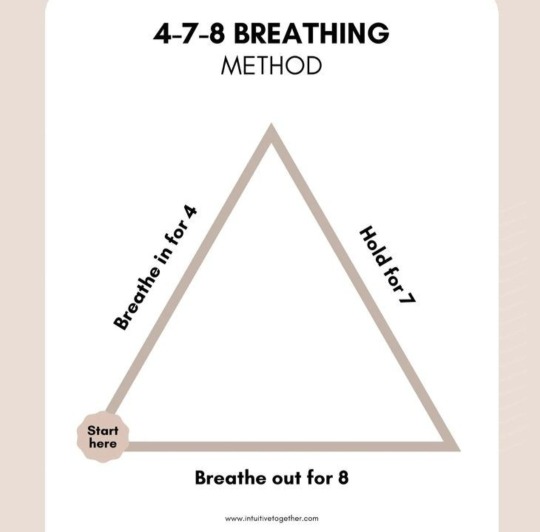
1. Practice 20 minutes of diaphragmatic breathing every day
Diaphragmatic breathing, also known as deep breathing, activates the vagus nerve, a crucial component of the parasympathetic nervous system. This type of breathing helps reduce cortisol production and lowers heart rate, creating a state of calm. Over time, regular practice of diaphragmatic breathing can significantly reduce chronic stress, improve emotional regulation, and enhance cardiovascular health.
Scientific support: studies have shown that consistent diaphragmatic breathing can alter the body's stress response, leading to long-term benefits such as lower blood pressure and improved heart rate variability—an indicator of cardiovascular resilience.


2. Engage in moderate physical activity for at least 150 minutes a week
Regular physical activity, especially of moderate intensity, has profound effects on brain structure and function. Exercise increases the volume of the hippocampus, the region of the brain associated with learning and memory. It also boosts the production of endorphins and dopamine, which enhance mood and reduce symptoms of depression.
Scientific support: longitudinal studies have found that individuals who maintain regular moderate to intense physical activity have larger brain volumes, a reduced risk of dementia, and better cognitive function compared to those who lead a sedentary lifestyle.


3. Listen to classical or instrumental music while studying
Listening to classical music, such as the works of Mozart, can increase alpha wave activity in the brain, which is associated with a state of relaxed alertness. This type of music stimulates the release of dopamine, a neurotransmitter that enhances motivation and focus.
Scientific support: research has shown that listening to classical music can improve concentration, memory, and learning ability. Over time, regular exposure to this type of music can enhance neuroplasticity, making it easier to learn and consolidate new information.

4. Regularly consume foods rich in choline, such as eggs and broccoli
Choline is an essential nutrient that plays a key role in the production of acetylcholine, a neurotransmitter crucial for memory and learning. Regular intake of choline through diet supports brain health and can improve synaptic plasticity.
Scientific support: studies have indicated that adequate choline intake is associated with better cognitive function and a reduced risk of neurodegenerative diseases such as Alzheimer’s. Over time, a choline-rich diet can support memory and protect the brain from age-related decline.
#it girl#that girl#clean girl#hyper feminine#becoming that girl#glow up tips#healthy girl#pink pilates girl#this is what makes us girls#weight loss#beauty tips#health tips#healthy diet#healthy food#healthylifestyle#healthyliving#health and wellness#neuroscience#stem studyblr#stem girls#stem academia#stemblr#stem#stem education#dream girl tips#tips#diet tips#studyblr#study blog#study tips
199 notes
·
View notes
Text
The thing about testosterone being a controlled substance means that acess to it for hrt is restricted. While it makes access a significant issue for many people and an easy and effective way to prevent trans men and mascs from transitioning (as we've seen terfs campaign for and succeed at doing in Britain) it also means that is very easy for health care professionals to be able to take it away from trans men/mascs arbitrarily. This is most aborant in cases where trans men/mascs are forced to detransition to gain access to abortions after being raped. However, the first sign of an issues tangentially related to hormones a gp, without any training in trans people or hormones, can and will stop a person's testosterone. Apart from how stressful it is to know that for the rest of your life you'll be dependent on the goodwill of a random person, this has measurable negative consequences for a trans person subjected too it.
Going off t fucking sucks at the best of time, but being forced off t will most likely result in depression and worsening mental health for a trans man/masc, who are already one of the most likely groups to attempt suicide. It can also put a trans person at risk if they suddenly start being visibly trans again, especially if they're closeted in, say, a work place environment. Trans people, including trans men, are already one of the most targeted groups of harassment and violence and sexual assalt and forcibly reducing or stopping t can out people and risk their safety. And a gp won't see this or care about this, or attempt to treat a trans man/masc first or ask for their opinion or situation.
Ultimately, testosterone is seen as entirely optional and so the first resort when something goes wrong it to take it away, when it should be considered the last resort, and is considered the last resort for cis men. And as long as testosterone continues to be a controlled substance it will remain like this.
(edit for clarification: I am a kiwi, this post was intended as a general critique of accessing t through health care systems - based in my lived experience in NZ and what ive heard from international trans ppl; including but not limited to the USA)
#Transandrophobia#This rant brought to you by my gp threatening my health and safety by stopping t for a couple conditions that would be treated if I were ci#Excess hemoglobin is documented but not well understood in trans men but there are option available that aren't no t#And high blood pressure runs in the family but no one's making my dad take t suppressants even though no medication is particularly effecti#If she asked me I would rather have gout and t than neither#But I don't get an option#And if I shout to loudly I'm scared they'll not let me ever take it again#She won't even put me back on the weekly injections I'm supposed to be on now that the shortage is over#Despite the fact she's worried my t levels are too high after the injection#(Which given they're normal after a week and how much I dislike the roller coster effect should be the first thing)#But if I start on the limited options and how t is seen as so optional shortages don't matter and different options don't matter
2K notes
·
View notes
Text
♰ . 𝒹opamine detox & why it’s important
⠀⠀
─── first of all what is the role of dopamine .ᐣ
dopamine acts on areas of the brain to give you feelings of pleasure, satisfaction & motivation. dopamine also has a role to play in controlling memory, mood, sleep, learning, concentration, movement & other body functions.
⠀⠀
─── what is a dopamine detox (fasting) .ᐣ
dopamine detox is a form of fasting from any activities or pleasures that produce dopamine so that drive for quick rewards decreases.
⠀⠀
─── what are the benefits of doing dopamine detox .ᐣ
𝟭 . regulates your dopamine response, so your brain can function at it’s best. when dopamine level is to high it can lead to addiction, impaired decision making & mental health problem,
𝟮 . makes you feel calmer & less anxious,
𝟯 . reduce the risk of depression that social media produces by addiction & comparing your life to other people,
𝟰 . boost your sleep quality & academic performance,
remember: benefits will always depending on the person, so do NOT compare to each other ♥︎
⠀⠀
─── what to avoid during dopamine detox .ᐣ
social media: spending endless time scrolling, liking, & commenting on social media platforms can really mess with our brains because of these little dopamine hits what keep us addicted,
gaming: especially avoid the super stimulating ones. they send our dopamine levels through the roof & make it hard to pay attention to real-life stuff,
eating junk food: high-sugar & high-fat food destroy your eating habits & body, including brain,
caffeine: it gives us that kick, but it also stimulates dopamine, which is why we gotta be mindful of our caffeine intake during a detox,
nicotine, alcohol & drugs: do i really have to explain?
watching shows: binge-watching your favorite tv shows it’s amazing way to spend time & flood your brain with too much dopamine,
⠀⠀
─── how to create a detox-friendly environment .ᐣ
𝟭 . designing a digital detox space
set up an environment that minimizes digital distractions. you can do this by creating a dedicated workspace or relaxation area where you limit or eliminate access to digital devices,
𝟮 . mindful nutrition
it’s important to choose foods that help maintain balanced dopamine levels. this might involve consuming foods rich in precursors like tyrosine (found in lean proteins), clean food & nutrients like antioxidants (found in fruits and vegetables) to support overall brain health and function,
𝟯 . engaging in low-stimulus activities
low-stimulus or low-dopamine activities are those that don't trigger excessive dopamine release. examples include meditation, gentle exercise, reading, or spending time in nature. engaging in these activities during your detox helps maintain a calmer & more focused state of mind, making it easier to resist the allure of high-dopamine behaviors & substances.
creating a detox-friendly environment is crucial to supports your efforts to reduce the impact of overstimulation on your brain's reward system. it sets the stage for a healthier lifestyle and a more balanced relationship with activities that can lead to excessive dopamine release.
─── with 𝑙ove, 𝓋ittoria ♥︎
#📁#it girl#loa#manifesting#subliminals#thewizardliz#law of assumption#affirmations#that girl#self care#self love#wonyoung#self concept#void state#pinterest#advice#neville goddard
244 notes
·
View notes
Text
GUT HEALTH: How it Affects Your body 🍽️🤍✨
Having a healthy gut is important because it plays a central role in the overall functioning of your body. The state of a healthy or unhealthy gut affects all of these things:
Digestion and Nutrient Absorption: The gut's main role is to break down food and absorb important nutrients, including vitamins and minerals. When the gut is healthy, it digests food effectively and maximizes nutrient absorption. When it is not, it can result in digestive issues such as bloating, gas, and diarrhea, as well as nutrient deficiencies.
Immune System Support: About 70% of our immune cells are located in the gut. A balanced gut supports a strong immune response, helping the body fend off illnesses and reduce the risk of infections.
Emotions and Mood: The gut and brain are intricately connected through the gut-brain axis. The gut produces many neurotransmitters, including serotonin, which regulates your mood. An imbalanced gut can influence mental health, leading to issues like anxiety, depression, and even cognitive impairments.
Hormonal Balance: The gut plays a role in the production and modulation of certain hormones. This can impact various bodily functions, from stress responses to reproductive health.
Weight Management: The gut microbiome can influence metabolism, appetite, and fat storage. An imbalanced gut can lead to weight gain and metabolic disorders.
Protection Against Chronic Diseases: Poor gut health has been linked to a higher risk of chronic diseases, including type 2 diabetes, cardiovascular disease, and certain types of cancer.
Detoxification: The gut plays a role in eliminating waste products and toxins from the body.
Inflammation Regulation: A healthy gut can help regulate inflammation in the body. Chronic inflammation, often resulting from an imbalanced gut is a root cause of many diseases.
Skin Health: There's a connection between gut health and skin conditions. Issues like acne, eczema, and rosacea can be influenced by the state of the gut. An unhealthy gut can lead to inflammation, which may manifest as skin issues.
Barrier Function: The gut lining acts as a barrier, preventing harmful substances from entering the bloodstream. A compromised gut lining, often referred to as "leaky gut," can allow toxins and pathogens to enter the bloodstream leading to various health issues.
Production of Vital Compounds: Your gut produces essential compounds, like short-chain fatty acids, which has a lot of positive effects on health from reducing inflammation to supporting brain function.
Sleep Function: The gut produces neurotransmitters and hormones that regulate sleep, such as serotonin and melatonin. An unhealthy gut can disrupt sleep patterns.
#gut health#health and wellness#healthy living#mental health#healthy diet#health#wellness#healthy lifestyle#health tips#health is wealth#food#nutrition#level up journey#self help#self care#personal improvement#personal development#personal growth#skincaretips#skincare
755 notes
·
View notes
Text
I would like to take a moment to acknowledge myself and say that I am elated and proud to have manifested some of my major goals since 2018-2019. Basically before then, 2014-16 I struggled with depression and suicidal ideation quite frequently due to not having steady income, as jobs in retail seemed the only available and “safe” options, but long shifts standing at a registers or posts were damagingly hard on my body. In 2017 I got a desk job that set me on the path of financial stability and reduced physical load, which did absolute wonders for my mental health but it was an absolute blight to my existence over time due to terrible management and the usual corporate garbage. I knew that staying there was fine for a time but not sustainable in the long run, so change must come eventually.
also around then, I continued to explore self portraiture and personal style but I really wanted to perform/create Burlesque acts and book them, and invest in and actually have choreography/technique and beautiful costume pieces that looked like the visions refining themselves in my head through research. I was also perpetually struggling in the dating sphere with the deficit of romantic fulfillment that I deeply wanted. and while they weren’t hostile, things were definitely weird with my family (dysfunctional, literal small town energy, upset that I didn’t want to be around them more in the suburbs but lots of interpersonal toxicity and lack of emotional growth).
I knew that in the coming years I wanted to…
quit my soul sucking job and set out to be a full-time or at least professional level burlesque performer, creating the qualitative and classic show girl acts I dream to see on stage
work on the floor at a boutique or mom-and-pop type shop that sells goods or services that are interesting to me, especially aesthetically, such as an antique shop or a jewelry boutique etc., but a place where I could sit intermittently as needed for my physical disability. Also, ideally it would be a position where I could express myself through style at my choosing and it would be received well, and also my hours would not be very early or very late.
find a loving and supporting partner who I could lavish equal amounts of love and support on to, live with and hopefully marry
Achieve/maintain financial stability enough that I have a reduced risk for homelessness and sometimes treat myself to things that I enjoy.
Figure out why the relationship with my family was such a struggle and do things within my power and desire to fix it.
In a world that isn’t a corporate machine devoid of empathy, none of that seems like a tall order to ask… but I live in America so… It took some time, but I’m starting to see the fruits and returns. Honestly sometimes things feel like a blur and I’m not exactly sure I could say there was a huge system to what I did overtime to make it work, but I know the work was there.
As of today, September 9, 2023:
I am a respected professional burlesque performer with costumes I figuratively gag over and acts that come closer and closer to hitting the aesthetic nail on the head for what I want to embody. (I quit that shitty desk job at the beginning of 2019 and haven’t looked back since. Sent a whole ass company wide message with a long and detailed “fuck you” too.😂🙈)
i’ve managed through burlesque, social media work, donations and savings, and —since the global pandemic—,odd jobs and grants/minimal loans, to continuously pay rent and ward off homelessness 
I live with the love of my life, to whom I am engaged and actively planning our wedding (we looked at a venue yesterday!)
I’ve helped my mom on the growth of her emotional intelligence and commitment to learning more about values under the race, gender, and sexuality umbrella, as well pushed her to examine the enabling and entitlement dynamics with her adult children that take advantage of her. While my relationship with my brother and sister is not great, my relationship with my mom has been steadily getting better since the pandemic. we had a breakthrough at the beginning of this year where she acknowledged and apologized for guilt tripping me for not being around the family more, when I was (she quoted) “actually protecting myself like she should have been.”
and litcherally within the past week I was offered the job at a local boutique I interviewed with a year ago and didn’t get, and I signed an offer letter to begin work within the month. 
To say I’m happy with the way things look right now is an understatement. The world still terrifies me, but I have no choice but to carve out a sliver of its beautiful experiences for myself, and I am doing just that. It may not be perfection, but it’s pretty damn good and I’m going to do everything in my power to keep it that way and make it even better. I am living my ancestors' wildest dreams!!
for anyone reading who might be struggling right now to make things work, I hope you hold on to hope that it can get better. A beautiful life is possible even on this hell scape, even for the marginalized.
551 notes
·
View notes
Note
hello
In what way do you think Dream is disabled/affected post-prison and if he does, what do you think he does to hide it?
permission to yap granted
this is what i do in most of my fics, so i have a good amount of content to go through. i could keep yapping, honestly, but i wanted to include the main things that cause my brainrot. gross pictures under the cut.
muscle atrophy. this happens quickly as the body enters starvation mode and begins to burn proteins. there would be a visible decrease in muscle mass, he would feel very weak and his limbs might tingle. recovery is possible, but isn't as easy as i think many people portray. the body is smart and will reduce its basal metabolic rate to adjust for a long period of starvation, and even after leaving the prison, his body would be primed and ready for another period of starvation. his body has learned that his environment doesn't provide consistent food. the body cannot 'reset' after a normal calorie intact resumes. the body keeps the score, or whatever they say. (i looked at a lot of pictures from 'the starvation experiment'. it lasted a little less than a year and was a setting where participants were carefully kept alive. most men lost 25% of their weight and only returned to their pre-study weight after 2 years of extensive treatment and therapy. u know cdream ain't seein a therapist. pictures under the cut)
quickened mouth decay / mouth dryness. on the topic of starvation, the mouth is actually one of the first places affected during a period of starvation. we don't make the saliva that we should when we aren't eating, and without saliva, the mouth begins to rot. this, along with fasting headaches, would be one of the first things he notices in the prison. it would be fixed pretty quickly upon eating normally.
seizures. many things can cause seizures to begin in someone who wasn't born with an epileptic condition, and dream's experienced most of them: starvation, head trauma, nerve damage, severe vitamin d deficiency, severe sodium deficiency, severe stress. these may decrease in frequency as he heals, but he'll be at greater risk if he fasts for any amount of time or if he's stressed. low-level muscle spasms are also going to be common.
impaired night vision/ decreased overall visual acuity. malnutrition does a ton of funky things, including to the eyes. he'd probably have a harder time adjusting to nighttime; i imagine returning to the prison is comfortable for this reason because he can control the brightness. hazy, eroded corneas are also common and might be visible to others. i put a picture under the cut. notice the green hue.
weakened immunity. like many others have mentioned, he will emerge from that cell with a paper-thin immune system. he'll be particularly weak to pneumonia and other respiratory diseases-- muscle atrophy also effects the muscles of the lungs.
essential tremors. just a fancy word for constant shaking. these could be psychological in nature, given the, you know, torture, but there are some links between malnutrition and tremors as well. he might try to hide it with weighted gloves.
improper amputation. "improper" is certainly a word for it, i know, but i want to emphasize that the kind of chop c!quackity would perform is nowhere near the level of a professional, surgical amputation. wearing a prosthetic would be very painful to say the least, especially if it isn't hand-crafted to suit his residual limb. i think cdream would probably try to endure that pain for the sake of hiding a major amputation, ie leg or arm, but i'm not sure he'd worry much about something like a finger. losing fingers doesn't affect grip strength as much as you might think, and i feel like thats all he'd really care about.
panic attacks, ptsd, memory loss, depression, hallucinations. just being locked in a single room for that long, let alone being tortured in it, would be enough for any of these symptoms. we have canon evidence for many of these, of course.
whatever other symptoms his injuries caused. depending on what tendons/muscles/bones quackity targeted, we might be looking at some different symptoms. i'm a big fan of concussion headcanons, and stiffness/immobility around scar tissue.
ultimately, i think the best bets for cdream as far as HIDING these effects are thick clothing, ill-fitting prosthetics, weighted gloves, moving in daylight, and avoiding confrontation. he'd probably want to prioritize mobility training to regain some dexterity and coordination, and to ensure that he can run away even if he can't fight.
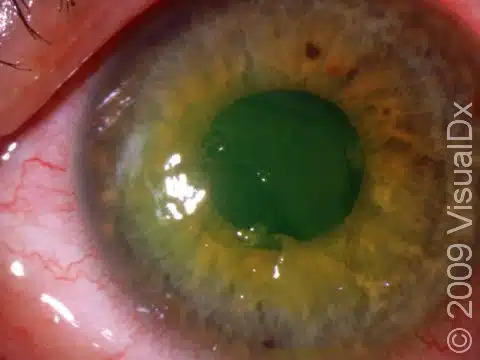
^ eroded cornea
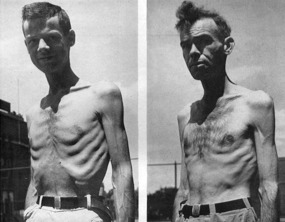
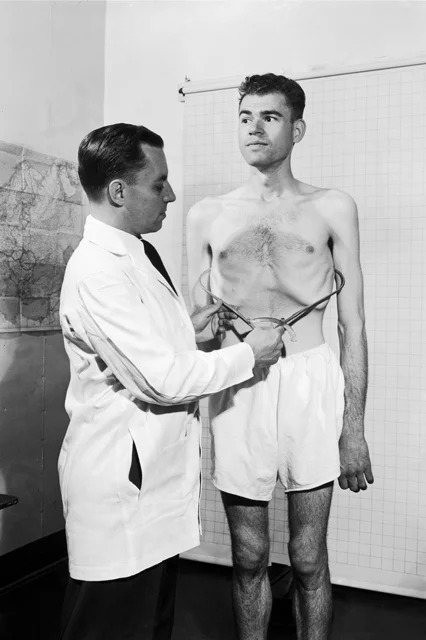
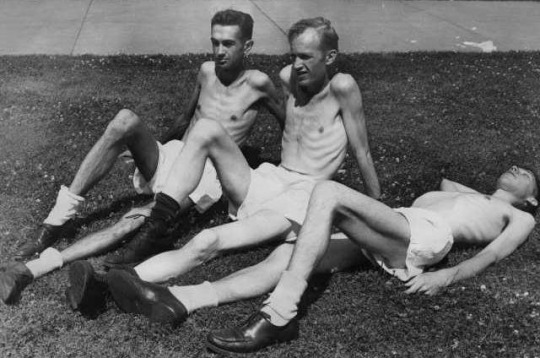
^ the starvation experiment
102 notes
·
View notes
Text
A new landmark study has found that access to gender-affirming healthcare significantly reduces rates of depression, gender dysphoria, and suicidality among transgender people.
While it’s no secret that providing gender-affirming care to transgender individuals who ask for it can greatly benefit their well-being, an increase in transphobic rhetoric and bans on gender-affirming healthcare has prompted thorough medical studies into the impact of such care.
Now, brand new research conducted in Melbourne, Australia, has found that allowing transgender people to access the care they’re after can reduce suicidality by a stunning 55%.
As part of the first-ever randomized controlled trial (RCT) on gender-affirming care, researchers took 64 transgender and gender-diverse adults who had been looking to start testosterone therapy and randomly split them into a treatment group and a control group.
While the treatment group was allowed to begin hormone therapy that week, the control group waited three months for their treatment to begin.
Before the study began, both groups were evaluated on depression, gender dysphoria, and suicidality. Three months later, the two groups were evaluated again.
RCTs for medical care can often be hard to conduct due to practical and ethical concerns. However, researchers of this study found a way to hold an RCT for this study by incorporating a shorter follow-up period. Rather than giving the control group a placebo drug, or no treatment at all, they were simply given a longer wait time.
The results showed a notable decrease in gender dysphoria, depression, and – most significantly – suicidality.
The group that received gender-affirming care right away saw a 55% reduction in suicidality compared to a 5% drop within the control group.
Depression scores in the treatment group decreased by half, while gender dysphoria rates also significantly decreased.
Breaking down their findings, researchers Brendan J. Nolan MBBS, Sav Zwickl, PhD, and Peter Locke wrote: “There was a statistically significant decrease in gender dysphoria in individuals with immediate [access to gender-affirming care] compared with delayed initiation of testosterone therapy.”
“A clinically significant decrease in depression and a decrease in suicidality also occurred with immediate testosterone therapy.”
“The findings of this trial suggest that testosterone therapy significantly decreases gender dysphoria, depression, and suicidality in transgender and gender-diverse individuals desiring testosterone therapy.”

Of course, this isn’t the first time that research has shown significant drops in depression and suicide rates among transgender individuals who receive gender-affirming care.
A 2022 medical study showed that young transgender people who have access to puberty blockers are 73% less at risk of suicide and report improved well-being.
But, as anti-trans activists advocate for further bans on gender-affirming care, one of the key arguments is that the evidence in support of the care isn’t up to scratch with GRADE (Grades of Recommendation, Assessment, Development, and Evaluation) standards.
So research like this landmark RCT is so significant to the transgender community and its allies as the fight for their healthcare rights rumbles on.
#us politics#news#pinknews#2023#gender affirming care#gender affirming healthcare#transgender healthcare#transgender#trans rights#trans healthcare#suicidality#depression#gender dysphoria#Australia#randomized controlled trial#trust the science#Brendan J. Nolan#Sav Zwickl#Peter Locke#testosterone therapy#Grades of Recommendation Assessment Development and Evaluation#lgbtqia+#lgbtqia+ rights
455 notes
·
View notes